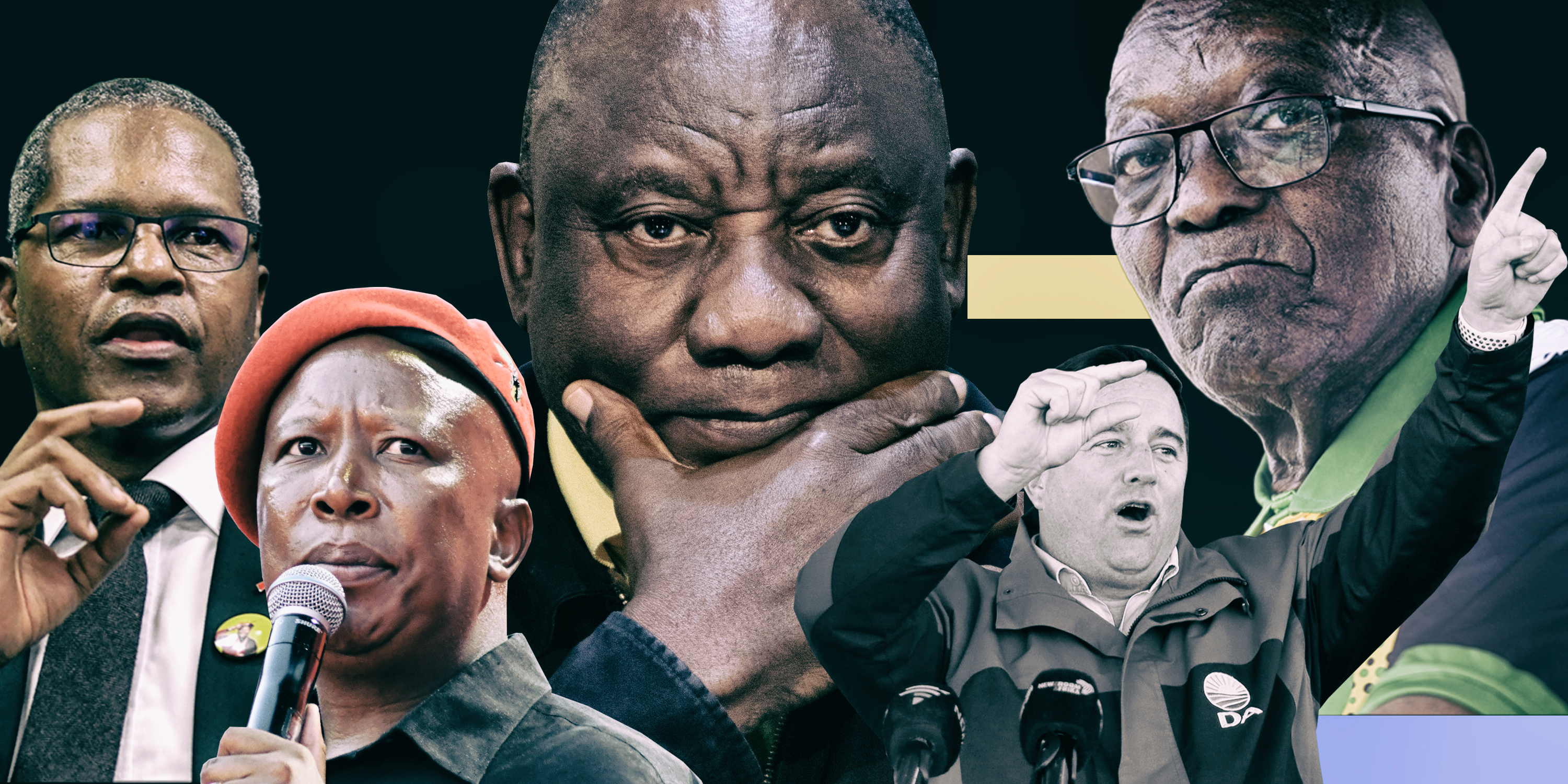Much can still change before the general election on 29 May, but the latest round of publicly available polling suggests that former president Jacob Zuma’s uMkhonto Wesizwe (MK) party could take a significant share of the vote from the ANC in KwaZulu-Natal.
It is likely to also take votes from at least two other parties, due to Zuma’s identity and the policies he appears to espouse.
While each individual has their reasons for their political choices, Zuma’s ethnic identity has played a role in past elections.
Read more in Daily Maverick: Elections 2024
When he was the ANC’s presidential candidate, in 2009 and 2014, the party won significantly higher shares of the vote in KZN.
In 2019, the IFP started to regain lost ground and in the 2021 local elections the ANC fell below 50% in eThekwini.
This suggests that another party led by Zuma in that province could have a big impact and could hurt the IFP — ethnicity may indeed play a role.
Then there is Zuma’s policy platform.
While some of what he advocates is socially conservative (he wants to send pregnant teenage girls to Robben Island), some of it can also be seen as radical.
His REToric about White Monopoly Capital might well resonate with some who were considering voting for the EFF.
Meanwhile, EFF leader Julius Malema has made no secret of his focus on KZN in this election, holding the party’s election manifesto launch at Durban’s Moses Mabhida Stadium.
These two factors can conspire to create an intriguing dynamic.
For Malema, this is a crucial election. If the EFF grows and, crucially, forces the ANC to be dependent on it in the national government or several provinces, he could acquire great political power.
Irony and controversy
If the EFF does not gain momentum or is unable to force the ANC into this relationship, it could mark the beginning of its decline. It would indeed be ironic were MK to stymie the EFF.
However, MK appears to be centred on one 81-year-old individual and is unlikely to be a long-term project.
This could give rise to more irony if Zuma’s MK prevents Malema from playing a significant role in the national government, only for MK to disband soon after the elections.
In the meantime, MK is likely to create major controversies in the next few weeks.
First, the ANC’s objection to its use of the name uMkhonto Wesizwe will go to the Electoral Court.
The ANC is likely to put up a spirited argument, claiming that the name is part of its history. MK is likely to use this moment to claim the ANC is no longer the “real ANC” and has been weakened or redirected by President Cyril Ramaphosa.
There is a strong possibility that the Electoral Commission or the Electoral Court will not allow MK to retain this name, simply because of the weight of the history behind it.
Then there is MK’s candidate list.
The Electoral Commission will soon publish that list for inspection by the public and political parties. Those parties will then have a period in which they can register an objection. The Constitution is clear that to qualify to be elected to Parliament one cannot have a conviction that resulted in a jail term of more than a year within the past five years. As Zuma was sentenced to 15 months in prison just three years ago, it is unlikely that he qualifies.
However, first someone has to object — and it is highly likely that both the ANC and the DA will do so. Both are determined to “stop Zuma”, and to be seen to be “stopping Zuma”. (The chief electoral officer also has the power to lodge an objection.)
All of this could have a huge impact on the party’s electoral prospects. It would be unprecedented for a party’s Number One candidate to be disqualified and for that party to have to change its name just before an election.
However, this would probably affect only the candidate list for Parliament; it should not have an impact on the image that MK uses on the ballot papers, meaning people could still make a mark next to an image of Zuma’s face on election day.
Threats of violence
Several MK leaders have claimed that they will not accept such decisions from the IEC or the courts.
They have said there will be violence if MK loses cases on these issues.
Considering that MK appears to exist entirely to further the political aims of Zuma and that the July 2021 riots were a direct response to his being jailed, this must be taken seriously.
Already, Water Affairs and Sanitation Minister Senzo Mchunu has spoken of the need for more security in KZN during the elections.
At the same time, any attacks by MK and Zuma on the IEC may well lead to the ANC publicly supporting the IEC. They will, after all, have the same interests. Already, the ANC has thanked the IEC for its swift investigation into the leaking of its national candidates list.
This could mean that we go into an election where the governing party could be about to fall below 50% for the first time, and yet that party would be giving its full public support to the Electoral Commission.
Thus, one of the worst-case scenarios of this election — that the ANC would dispute the legitimacy of the IEC — could be avoided, all because of the actions of Zuma and MK.
MK appears to be a small organisation centred on one person — making it rather unpredictable. But what is now undeniable is that the introduction of MK into these elections will have a big impact. DM





